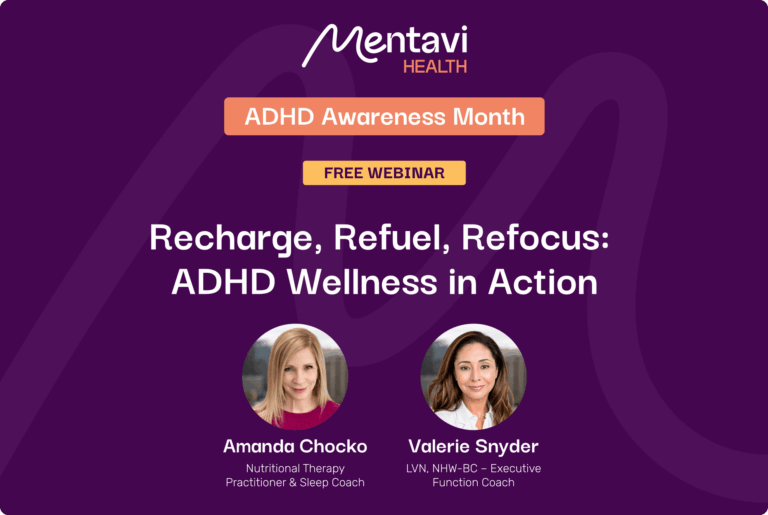
ADHD is often thought of as a condition that children eventually outgrow. However, many kids may continue to show ADHD symptoms as they age and into adulthood.
In fact, 60% of kids with ADHD still have symptoms as adults, according to a longitudinal study by the National Institute of Mental Health published in the Journal of Child Psychiatry and Psychology,
“The public domain continues to think that ADHD is something that is outgrown and therefore adults who continue to be symptomatic are not trying hard enough or this is a willpower issue or poor self-motivation,” says Kevin M. Antshel, PhD, professor of psychology at Syracuse University.
Whether or not kids outgrow ADHD isn’t cut and dried, Antshel said. He points to the way ADHD is defined in the Diagnostic and Statistical Manual of Mental Disorders, Fifth Edition, or DSM-5. That is the standard classification of mental disorders used by mental health professionals in the United States.
“Do children with ADHD automatically grow up to become adults who continue to meet DSM-5 criteria for ADHD? The answer is no,” says Antshel. ” In fact, a minority of children with ADHD will continue to meet DSM-5 criteria as adults. Does that mean they outgrow their difficulties and their symptoms (related) to impairment? The answer is also no.”
Discrepancy with DSM-5 criteria and symptoms
That issue — not meeting the strict criteria in the DSM-5 but still having symptoms related to ADHD — causes confusion and misinformation around outgrowing ADHD.
Criteria for ADHD defined in the DSM-5 includes developmental insensitivity, says Antshel.
“The DSM-5 is heavily weighted towards hyperactivity and hyperactive symptoms,” he says. “For example, there is a symptom called ‘runs about or climbs on things.’ If I saw an adult climbing on things, ADHD would not be the first thing that I would think of. These are just behaviors you don’t see (in adults).”
Additionally, trials for which ADHD symptoms were analyzed were all conducted on children, which also creates misunderstanding around ADHD in adults.
On a positive note, Antshel adds that while society may have a false expectation that people outgrow ADHD by adulthood, he believes this notion is slowly changing. For instance, when he attended graduate school for psychology 30 to 35 years ago, he was taught that ADHD was a childhood disorder that most kids outgrow by their teen years.
“I’m involved in the education of ADHD now and I know we do not teach students that,” he says. “As probably with everything, it takes time for (revelations) at the professional level to trickle down to the public domain.”
Symptoms that may continue into adulthood
ADHD symptoms that tend to continue most persistently into adulthood are often inattentive ADHD symptoms listed in the DSM-5, says Antshel. These include:
- Disorganization
- Forgetfulness
- Losing things
- Procrastination
- Distractibility
“There have been dozens of longitudinal studies that have documented that inattention symptoms persist more,” Antshel says. “Now again, you can say that’s because the hyperactive symptoms (in the DSM-5) are not developmentally appropriate, and I would agree with that.”
He says the DSM-5 doesn’t display an equal consideration of impulsivity; there are six hyperactive-impulsive symptoms, but only three impulsive.
“The impulsive ones tend to be more persistent into adulthood, [such as] the interrupting or intruding during conversations,” Antshel says.
Living with symptoms is manageable
While ADHD might not be something you can outgrow, there are treatments and strategies that can help manage the condition.
Conducive environments
ADHD is environmentally dependent, meaning some environments might make symptoms worse while others are set up for those with ADHD to be successful. Because of that, Antshel says, societal changes could help those with ADHD thrive.
“For example, I couldn’t imagine a worse environment for people with ADHD than the traditional K-12 educational setting that is designed to be a crucible for ADHD children (because it requires) delayed gratification, need to exhibit self-control, and keep their attention, even though they may not be completely interested in the topic,” says Antshel.
Because adults have more control of their environment, they can gravitate toward environments that encourage success, such as finding certain majors in college and certain jobs that are best suited for their ADHD symptoms.
“I worked with a couple hundred children with ADHD who are now adults and doing quite well occupationally because they found something that worked for them and that doesn’t always involve college,” says Antshel. “(Many) gravitated toward a vocational career, including the military. And that environment was much more conducive to them, and the impact of their ADHD symptoms went down, and they reported being happier and were functioning better.”
While these people thrived in these environments, Antshel says, it doesn’t mean their ADHD traits went away. “But it tells me the environment around them was quite different and that it wasn’t a burden like it was back in the K-12 days,” he says.
Therapy
Therapy for ADHD during childhood and adulthood can help manage symptoms.
For children, behavioral therapy and cognitive behavioral therapy — which helps people recognize negative or unhelpful thoughts and behaviors — can help reduce symptoms, according to the Centers for Disease Control. Adults may also benefit from CBT because it teaches ways to gain control over ADHD symptoms.
“People with ADHD struggle more with life transitions and it can be very destabilizing,” Antshel says. “Out of high school to college, or high school to a job, or college to a job. So at transition points it can be helpful to have some kind of treatment there to support you along the way.”
As a psychologist, he notes that he isn’t a proponent of therapy for people who are functioning well with their ADHD symptoms.
“I’m reluctant to recommend a therapy for life, if you will, approach,” he says. ” I don’t really know that there is a lot of evidence that that’s helpful. And, more importantly, given the mental health (care) shortage in our country, that is taking needed services away from someone who may need it more.”
Medication
The Food and Drug Administration has approved two types of medications (stimulants and non-stimulants) to be prescribed to kids as young as 6 years old to help reduce the symptoms of ADHD and improve functioning.
There are many reasons parents may choose not to treat their children with ADHD medication. But making this decision based on misinformation can be harmful, Antshel says. For instance, he says, there continues to be misinformation that the use of a stimulant during childhood is going to increase the likelihood of drug abuse in adulthood.
“(There) is no evidence suggesting (stimulant use) increases drug abuse or substance abuse in adulthood,” he says. “In fact, evidence suggests the opposite — that treating helps you do better in school. And when kids do better in school, they’re less likely to drop out and get involved with deviant peer groups, etc.”
Antshel defers to his adult clients when it comes to medication. If they think they’re functioning well, the use of medication becomes an option rather than something that he would strongly recommend.
He offers guidance based on a person’s life circumstances. If a person wants to go off medication and is starting a new job, Antshel may tell them the timing might not be the best. He says that he may tell them: “’While that’s a wonderful goal, let’s get you acclimated to the new job, so you can develop some routines and other ways to be effective and then go off medication.'”
He adds that, like therapy, medication isn’t always a lifetime treatment — “because then that means they haven’t found an environment or setting or job or that’s going to help them function better.”
Sources:
The Journal of Child Psychiatry and Psychology







